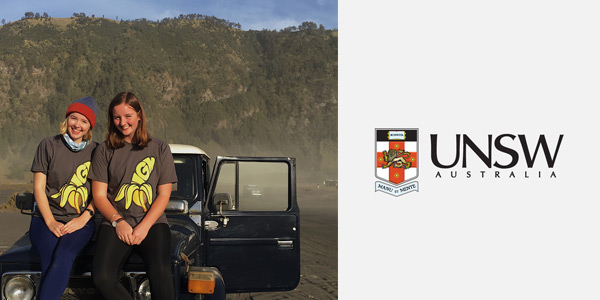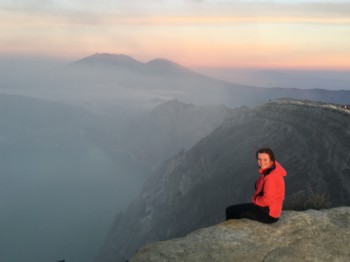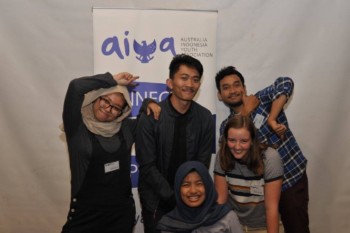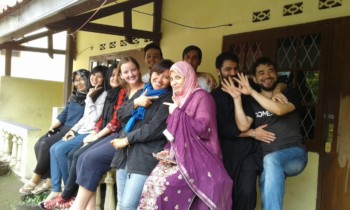
Brianna Kerr, a 2017 New Colombo Plan Mobility Grant recipient from UNSW Australia. Brianna completed the Development Studies Immersion Program at Gadjah Mada University in August-December 2017.
Q: Why did you decide to undertake the ACICIS program?
For the International Studies component of my degree, I have to complete two compulsory semesters abroad (lucky duck). I always wanted to study in a developing country so the ACICIS program was the perfect alternative to the traditional exchange programs available at my university. Being a Development Studies major, DSIP included everything that I was seeking from studying overseas – intense and immersive language classes, an internship segment with an NGO and seminars delivered by local organisations and professionals.
Q: Are you involved in any clubs/societies at the university?
I am involved with the Australian Indonesian Youth Association (AIYA) as the Yogyakarta Chapter Secretary. Working closely with committee members and volunteers to organise language exchanges, social events, community projects and fundraisers has been so much fun and a fantastic way to meet local and international students. I wish I had more time to participate in more clubs because there are some really unique ones operating out of UGM.
Q: How will the Development Studies Immersion Program influence your future career or study?
The opportunity to study and work in a foreign context for half a year has influenced my future goals greatly. Whilst passionate about refugee rights back home in Australia, I think that working directly with those awaiting resettlement in Indonesia has really ignited my desire to pursue studies into the phenomena of forced migration, transit migration and living in limbo as an ASR. Further, my time in Yogyakarta has definitely made it a place that I would consider working in – it is a diverse and emerging country with so much to offer in terms of career prospects in development (as well as a lot to offer in terms of culture, food, and lifestyle – aku cinta Indonesia).
Q: How does development in Indonesia differ to what you’ve seen before?
Having interned and volunteered in Malawi, India and Papua New Guinea, I have observed some interesting approaches to development ranging from traditional aid methods to social enterprise and microfinancing schemes. In Indonesia, I have been inspired by the high levels of engagement present at the community level, and amazed by the ways that Indonesian people are constantly creating innovative and sustainable solutions to solve issues in their lives. Grassroots movements here are driven by a desire for communal progress, founded on a strong sense of allegiance to the common people and the wider municipal. I think that development in Indonesia will continue to be motivated from the bottom-up before it is effectively executed from the top-down – the people of Indonesia are arguably its greatest resource.
Q: What do you like to do in your spare time in Yogyakarta?
Eat and explore. Eat some more. Explore some more. Mostly eat.
Q: Are you undertaking an internship while in Indonesia?
I am currently interning with the Jesuit Refugee Service (JRS) between Yogyakarta and Bogor; an organisation that aims to accompany, serve and advocate for refugees and asylum seekers throughout the world. Interning with JRS has given me the opportunity to learn about the ASR situation in Indonesia quite intimately and better understand the role of local and international players in the forced migration sphere.
Q: What is your favourite food/place to eat?
Camping out for Gudeg Bromo at 11pm at night, grabbing a coffee from Bahasa Kopi on the way to the office or over-ordering terong at Special Sambal are among my favourites feeding activities.
Q: What is your favourite Indonesian word/phrase:
Peluk aku – favourite thing to say to my kost friends when I need a snug.
Q: What places in Indonesia have you visited during your semester so far?
Bali
Nusa Lembongan
Nusa Penida
Flores
Bandung
Bogor
Mount Bromo and Mount Ijen (Surabaya)



